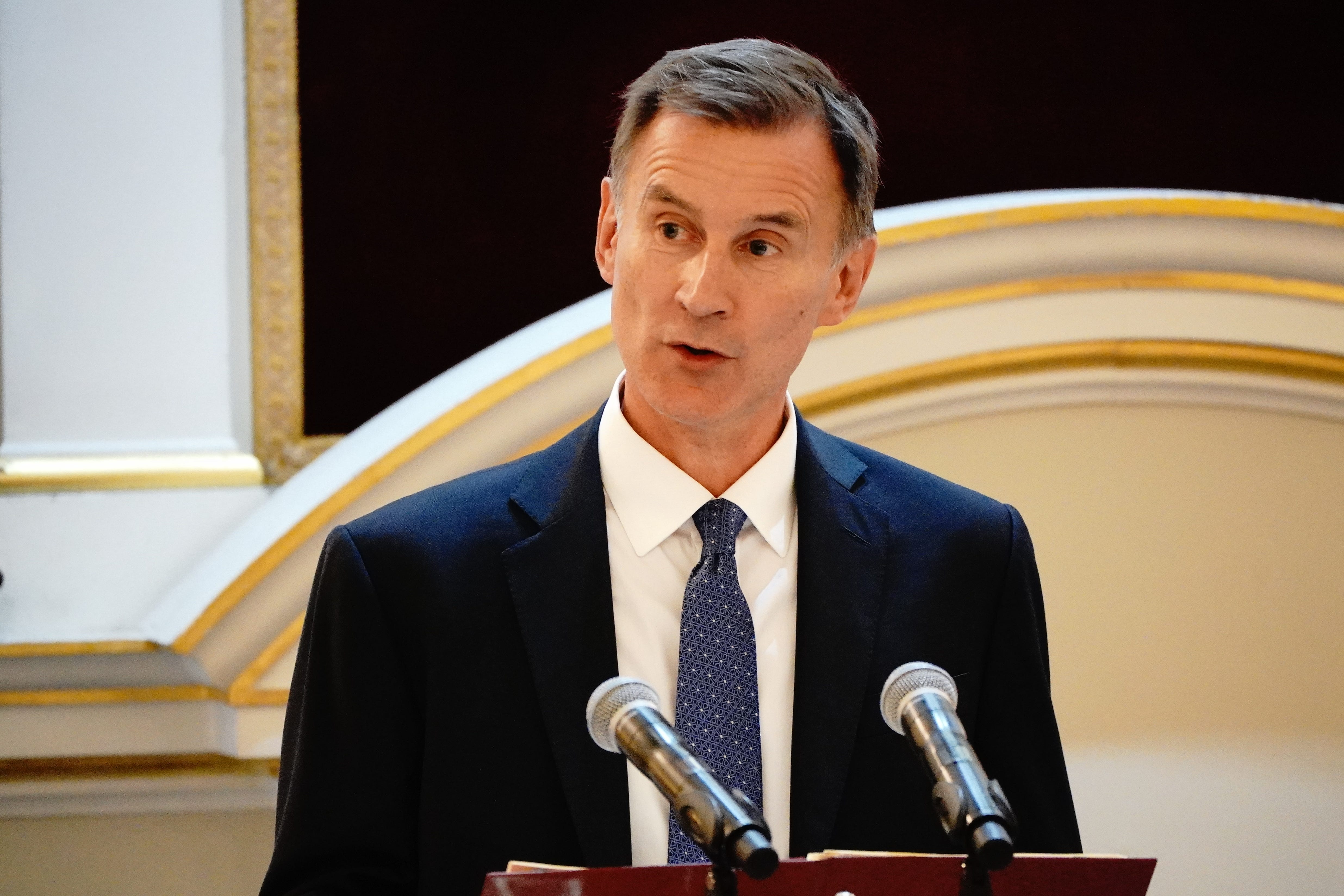Jeremy Hunt to take ‘difficult but responsible’ decisions on public sector pay
Rishi Sunak and the Chancellor are set to announce decisions on pay for millions of public sector workers.

Jeremy Hunt said the Government would take “difficult but responsible” decisions on pay awards for millions of public sector workers against a backdrop of a doctors’ strike, a weak economy and persistent high inflation.
Prime Minister Rishi Sunak and the Chancellor met on Thursday to decide whether to accept the recommendations of pay bodies which are thought to be suggesting rises of around 6-6.5% for a variety of professions, from medics to teachers.
Announcements are expected later and a failure to fully accept the reports would provoke further rows with unions, a problem underlined as junior doctors embarked on their longest walkout yet in England on Thursday.
The Treasury has ruled out increasing borrowing to pay for wage rises, meaning any extra cash for workers may have to come from raiding existing departmental budges, potentially meaning cuts to services.
The current level of CPI inflation is running at 8.7% and Mr Sunak – who has promised to cut it to around 5.3% by the end of the year – wants to avoid pay increases which could fuel a wage-price spiral.
Mr Hunt told MPs on Thursday that “it is important to deliver on the Prime Minister’s priority to get debt falling and to control borrowing to avoid adding inflationary pressures and risk prolonging higher inflation”.
“That means taking difficult but responsible decisions on the public finances,including public sector pay, because more borrowing is itself inflationary.”
The wider economic challenge facing the Chancellor and Prime Minister was illustrated by official figures showing the UK economy contracted in May.
Written statements listed on Thursday’s Parliamentary order paper show ministers are due to give updates on the NHS, police, teachers, the armed forces, civil service and the justice system.
Disruption to thousands of planned appointments is expected as junior doctors in England on Thursday started their longest walkout yet in protest over pay.
The strike started at 7am and ends at the same time on Tuesday.
Meanwhile, teachers from the NASUWT union in England plan to stage continuous action short of strikes starting in September, although its members could still walk out in the autumn if the row continues.
Deputy Labour leader Angela Rayner refused to say whether her party would back the pay review body proposals for public sector workers, saying she does not have access to the Treasury books.
Speaking at the Institute for Government, she said: “I haven’t seen the books that the Government have got. We don’t have access to the Treasury and where they’re up to now.”
She added: “We would obviously look at what the pay review bodies have said and what their recommendations are and we’d look at how we negotiate that and get a settlement on it. And that’s the best I can give you at the moment.”
Bookmark popover
Removed from bookmarks